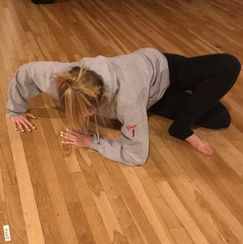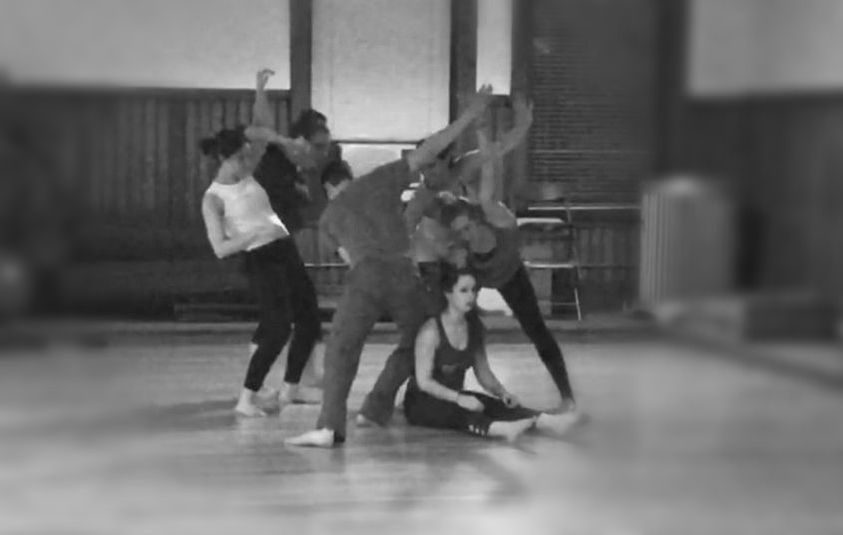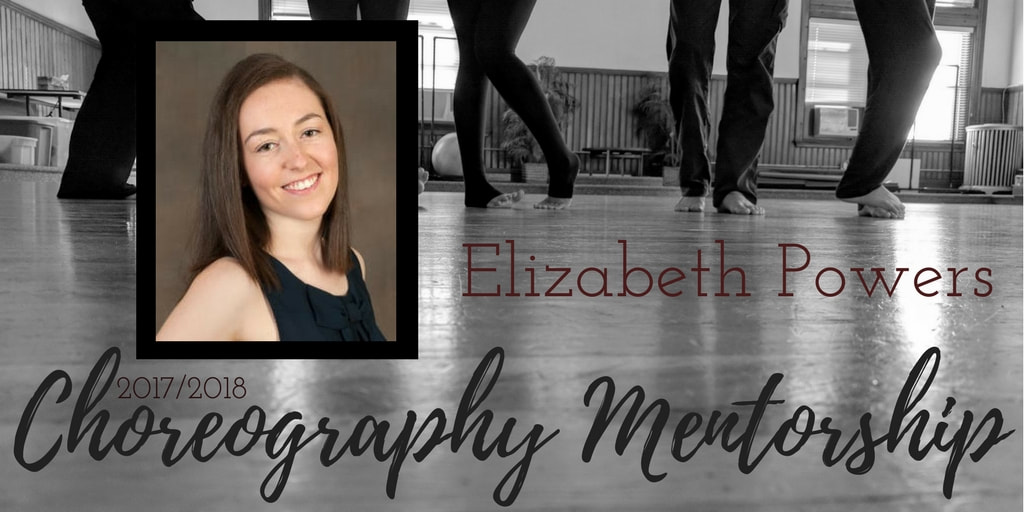|
by Elizabeth Powers  As part of the piece that I am setting on Monkeyhouse for NACHMO Boston I have been working with improvisation within performance. Living in this world has given me the opportunity to watch how improvisation scores change as they are being done and how they can be edited from a choreographer’s perspective in order to facilitate the most interesting movement generation. I love the concept of improvisation because it allows for the movement that is being performed to be unique and new to everyone. I believe that audience members respond in a way that is reflective of the performers experience. I have also found that when choreography is set and drilled in an effort to clean for a long period of time, it can become boring to the dancers performing it. Dancers often get so used to moving in a certain way that the movement can become comfortable or monotonous. As an observer and a choreographer, I am finding that allowing room for chance and change in every run of a dance has begun to invoke a feeling of exhilarating anticipation while simultaneously leveling the playing field, as no individual party knows exactly what will happen each time the piece is performed. Possibly one of the unconscious reasons that I have been drawn to improvisation is that I like to see what people come up with, and particularly how many different ways one idea can be interpreted. I really admire individuality and uniqueness in people and I enjoy seeing work where the idiosyncrasies of each performer are valued. Especially as an emerging choreographer, I think that using strategies that showcase individual performers strengths, personalities, and backgrounds, allows me to uncover what it is that I like to see and put into my choreography. By incorporating improvisation scores into performance, I get to be excited and surprised with every run through and performance, which is a thrilling experience as a choreographer.
0 Comments
Photo by Paradise Photo. Graphic by Nicole Harris A conversation between the two choreographers for this years choreographic mentorship program; Elizabeth Powers and Elyssa Berg. EB: You just recently finished school at Roger Williams University this past May, what have you been up to since graduation? EP: I am currently living in Providence, RI and working as a teaching artist in a middle school where I work with teachers to integrate arts into the academic curriculum. I'm taking classes and dancing in various projects around the Boston and Providence areas. I'm also working on creating some new work that pushes me into a different mode of creating movement. EB: So now that you have a chance to pursue new ideas what are you finding yourself most interested in exploring as a choreographer? EP: As a choreographer a lot of my interests come from thoughts. I am really interested in people and how they work. I think that dance and movement facilitate exploration of these sorts of topics. I am also interested in exploring the possibilities of improvisation. I like to create improvisation scores that involve challenges or problems that have to be solved by doing the improvisation. Personally I use this method as a way to get myself to create movement that is different from what I usually do. I find that improvisation allows dancers to constantly be pushing the limitations of movement without getting stuck in a pattern, or at least provides the option of editing a score to create an escape from the pattern. I am also interested in using improvisation within the structure of a final piece. I get sick of doing the same thing all the time and am interested in the ways that a piece can be different every time that it is performed while it is still the same piece. EB: It sounds like you are trying to push yourself to constantly change and try new approaches and tools, where do you find most of your inspiration for these new ideas comes from? EP: A lot of my inspiration comes from watching dance. When I need to come up with an idea for a piece, going to see a good show always brings me into that mindset and gives me ideas to play with. I'm also inspired by relationships and observations throughout daily life. I find that the movement that is constantly occurring everyday is often as interesting as any movement that we classify as dance, when it's put in the appropriate context. EB: You are about to begin the process of creating a piece for NACHMO, as you start this process and other processes what would you say is your biggest challenge in creating a new work? EP: My biggest challenge when creating work is probably choosing what to focus on. I often have a lot of completely random ideas and so choosing which ideas to focus on is a challenge. I like to let ideas develop and pull my work in a certain direction, but before I can do that, I have to choose which ideas to give that power to. Sometimes I'll let a piece go in one direction for a while before deciding that isn't where it is supposed to go, so being open to giving a piece multiple chances to identify itself is important to me. EB: Do you have any plans for the near future? Are there any goals or things you would like to accomplish in the next five years or so? EP: Honestly the only thing that I know I still want to be doing in five years is dancing. I want to be creating and sharing work regularly. I want to work with populations who have varying abilities as well as share the power of movement with anyone who could benefit from it. I want to be moving in a different way than I am right now. There are so many different ways to move and in my 22 years of life I have just scratched the surface. EB: As you have had a long relationship with Monkeyhouse what would you say is your favorite part about working with the company? EP: I love that I get to work with people who are so willing to try and to support. I can go into a musing with a weird idea or a hand gesture and come out with something really interesting. Also working with people like Karen and Nicole who have been teaching me dance since I was a kid is amazing because I know that they won't hesitate to push me out of my comfort zone but they will also help me make sense of things when they seem to be going nowhere. So, my favorite part of working with Monkeyhouse is being able to work with a community of dancers who will accept crazy ideas and make something out of anything that they are given. |
Categories
All
Archives
April 2023
|
MONKEYHOUSE


 RSS Feed
RSS Feed
